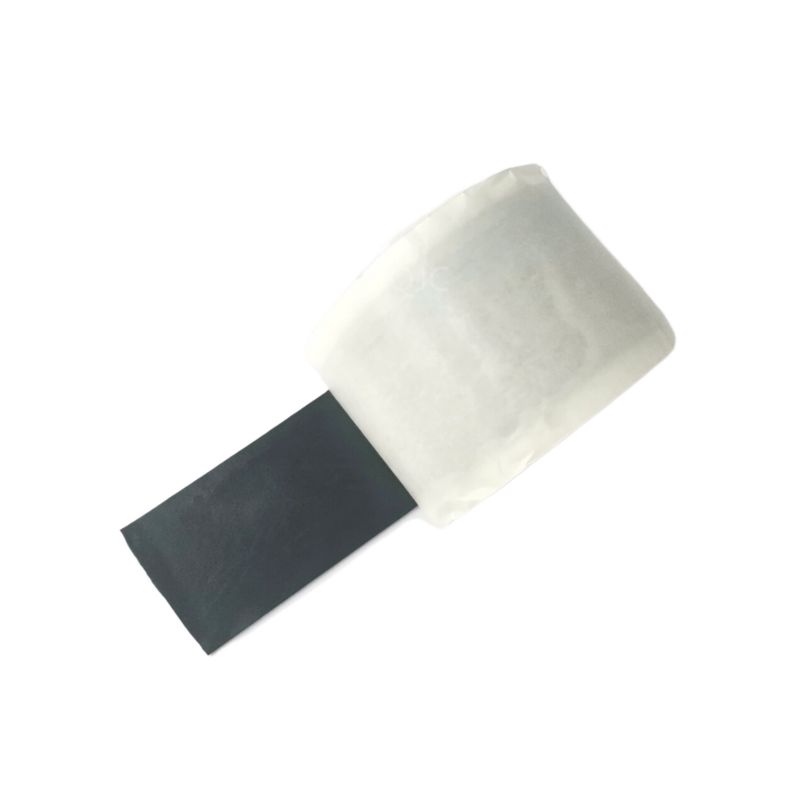Understanding Fabric Insulation Tape Versatility and Applications
Fabric insulation tape is a specialized type of adhesive tape that is designed for an array of applications, particularly in areas requiring insulation, protection, and durability. Made from a cloth material that provides excellent flexibility and strength, this tape is often coated with a high-performance adhesive that ensures a strong bond to surfaces.
One of the primary benefits of fabric insulation tape is its versatility. Used extensively in electrical work, it serves as an exceptional insulator for wires and cables, protecting them from abrasion, moisture, and chemical exposure. The fabric construction allows it to conform easily to irregular surfaces, creating a reliable barrier that can withstand temperature variations and electrical stresses. This makes it an invaluable tool in both residential and industrial settings.
In addition to its electrical applications, fabric insulation tape is often employed in automotive and aerospace sectors. In vehicles, it is used to bundle wires, secure hoses, and insulate components, contributing to the overall safety and efficiency of the vehicle’s systems. Similarly, in aerospace applications, the tape plays a critical role in ensuring that sensitive electronic components are adequately insulated and protected from environmental factors.
One of the distinguishing features of fabric insulation tape is its performance in extreme conditions. Unlike plastic or vinyl tapes, fabric tape can withstand higher temperatures, making it suitable for high-voltage applications and environments where heat dissipation is crucial. This characteristic is particularly important in industries where equipment generates significant heat during operation.
fabric insulation tape

Moreover, the durability of fabric insulation tape ensures longevity in its applications. It resists tearing and fraying, which are common issues with lesser-quality tapes. This resilience makes it ideal for projects that require a long-lasting solution, reducing the need for frequent replacements and maintenance. Additionally, the tape’s adhesive properties allow it to adhere firmly to various substrates, including metal, wood, and plastic, making it a go-to choice for many professionals.
Besides its practical uses, fabric insulation tape comes in a variety of colors and finishes. This variety allows not only for functional application but also for aesthetic purposes, such as color-coding wires and cables for easier identification and organization. As a result, it plays a vital role in improving the overall appearance and functionality of electrical installations.
When applying fabric insulation tape, it is important to prepare the surface appropriately. Cleaning the surface to remove any dirt, grease, or moisture will enhance the tape's adhesion and extend its lifespan. The application should be made with care, ensuring that the tape is wrapped tightly around the object, especially in the case of electrical insulation, where any gaps could lead to potential hazards.
In conclusion, fabric insulation tape is a crucial tool in various industries, thanks to its durability, versatility, and performance in demanding conditions. Whether utilized for electrical insulation, automotive applications, or aesthetic organization, its benefits are manifold. As technology advances and the demands of various fields evolve, the role of fabric insulation tape will continue to expand, cementing its importance in both everyday applications and specialized industries.
-
XIANGFAN Rubber Tape-Ultimate Solutions for All Your Insulation NeedsNewsJun.24,2025
-
XIANGFAN Rubber Tape-Protection for Industrial and Residential ApplicationsNewsJun.24,2025
-
XIANGFAN Rubber Tape: Superior Safety and Sealing for Demanding EnvironmentsNewsJun.24,2025
-
XIANGFAN Rubber Tape: Reliable Solutions for Every Electrical ChallengeNewsJun.24,2025
-
XIANGFAN Electrical & Industrial Tape: Powering Reliability Across IndustriesNewsJun.24,2025
-
XIANGFAN Electrical & Industrial Tape: Excellence in Every ApplicationNewsJun.24,2025
